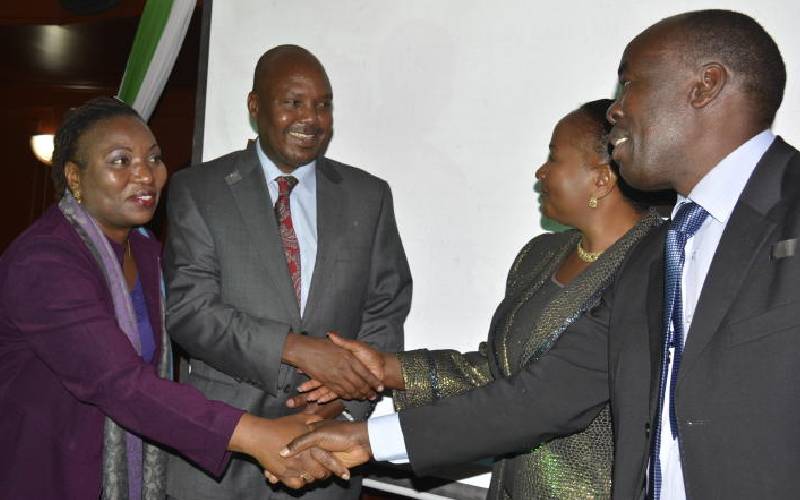×
The Standard e-Paper
Join Thousands Daily

Former IEBC Vice-Chairperson Lilian Mahiri-Zaja, Commissioner Thomas Letangule, Wavinya Ndeti and Director of Diaspora and Consular Affairs Washington Oloo during the launch of the online portal for mapping of Kenyan citizens residing outside the country and eligible to vote. [File, Standard]
The Independent Electoral and Boundaries Commission-IEBC, has started the mapping of the diaspora vote ahead of next year’s general election.